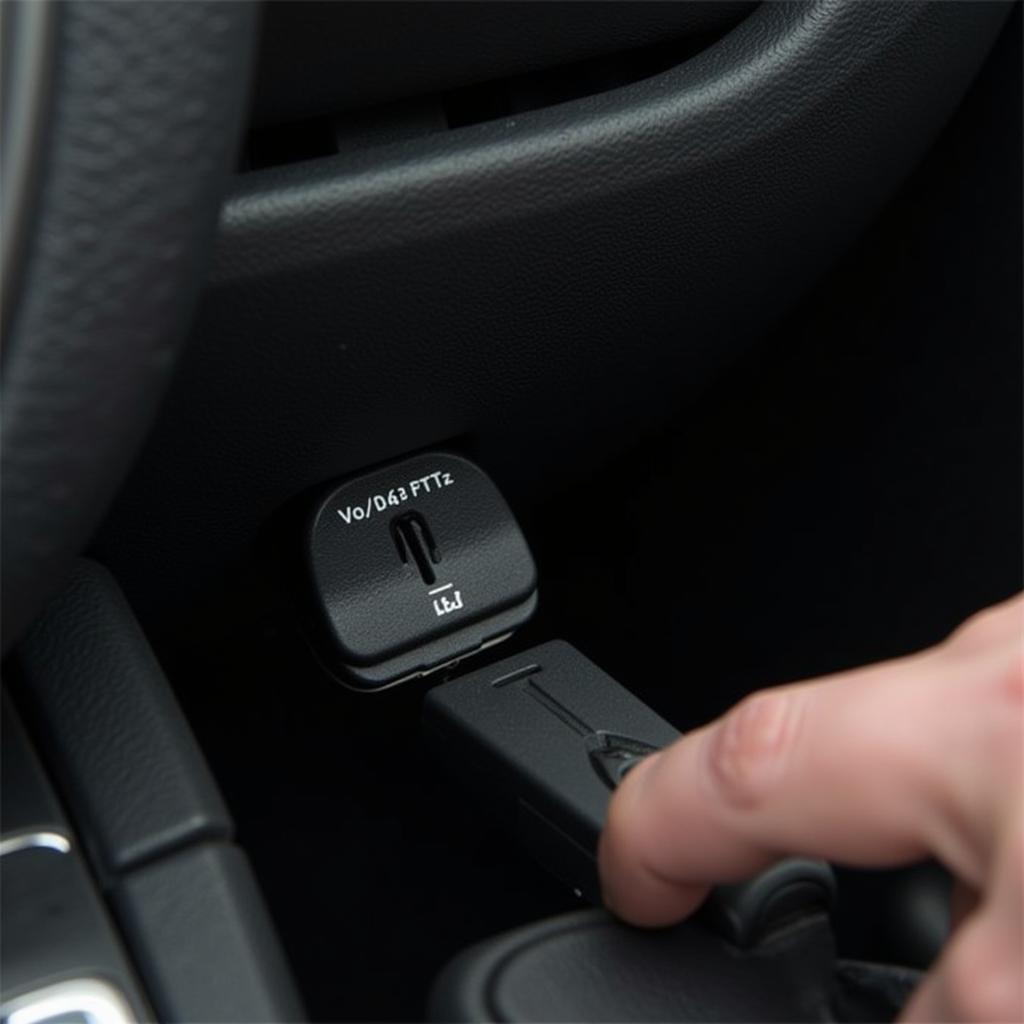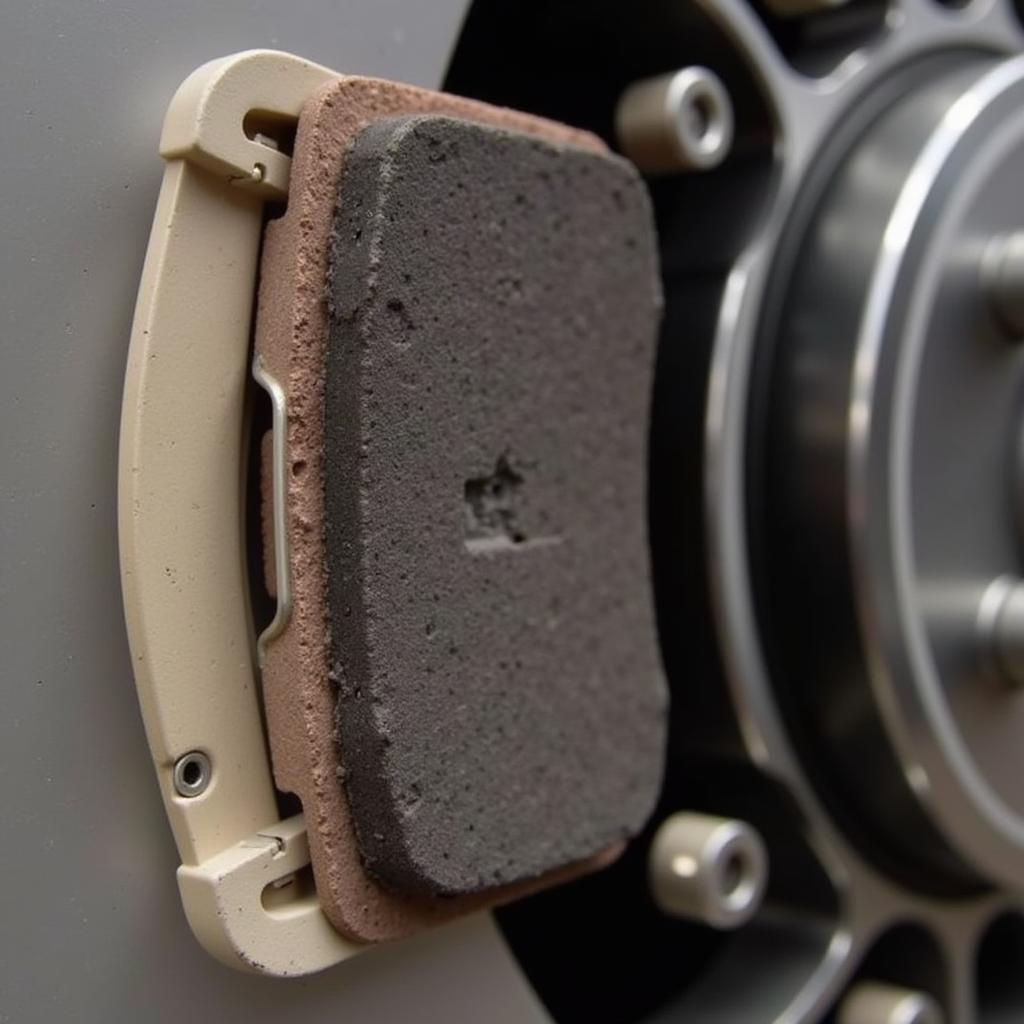You’re driving along and suddenly notice a flashing light on your dashboard – the dreaded handbrake warning light. While this sight can certainly trigger some anxiety, don’t panic! A flashing handbrake warning light doesn’t always signify a major issue. Let’s dive into the common causes and how you can address them, potentially saving yourself a costly trip to the mechanic.
Understanding Your Car’s Braking System
Before we troubleshoot the flashing handbrake warning light, it’s helpful to grasp the basics of your car’s braking system. The handbrake, also known as the parking brake or emergency brake, is a completely mechanical system. When engaged, it uses cables to directly lock up the rear brakes, securing your vehicle in place. This system operates independently of your main hydraulic braking system which is used for slowing down and stopping while driving.
Common Causes of a Flashing Handbrake Warning Light
1. Parking Brake Not Fully Released:
This is the most frequent culprit. It’s easy to accidentally drive off with the parking brake slightly engaged, especially if you’re in a hurry. A quick check to ensure your handbrake is fully disengaged can often resolve the flashing light.
 Parking Brake Lever
Parking Brake Lever
2. Low Brake Fluid Level:
Your car’s braking system relies on hydraulic pressure from brake fluid to function correctly. When the fluid level drops too low, the handbrake warning light might start flashing as a safety measure. This could indicate a leak in the system which needs immediate attention.
3. Worn-Out Brake Pads:
Brake pads wear down over time due to friction. If your pads are excessively worn, it can trigger the handbrake warning light. This is a critical safety issue, and worn brake pads require immediate replacement to ensure safe braking performance.
4. Faulty Brake Sensor:
Modern vehicles use sensors to monitor various components of the braking system. A malfunctioning handbrake sensor can send incorrect signals, leading to a flashing warning light even if there’s no actual problem.
 Brake Pad Wear Sensor
Brake Pad Wear Sensor
5. Electrical Issue:
As with any electrical system in your car, wiring problems or a faulty dashboard light can occur, causing the handbrake warning light to malfunction.
What to Do When Your Handbrake Warning Light Flashes
1. Don’t Panic:
A flashing light doesn’t always mean an immediate emergency, especially if your car seems to be braking normally. However, it’s essential to address the issue promptly.
2. Check Your Parking Brake:
Ensure your handbrake is fully released. If it’s even slightly engaged, it can trigger the warning light.
3. Inspect Brake Fluid:
If you’re comfortable under the hood, carefully check the brake fluid level in the reservoir. If it’s low, adding brake fluid might temporarily solve the issue, but it’s crucial to visit a mechanic to diagnose and repair any potential leaks.
4. Consider Brake Pad Condition:
Think about the last time your brake pads were replaced. If you’re due for a change or notice any signs of worn brakes like squealing, grinding, or reduced braking performance, get them checked immediately.
5. Seek Professional Help:
If the handbrake warning light continues to flash after checking the above, it’s best to consult a qualified mechanic. They can diagnose the problem using specialized diagnostic tools and recommend the appropriate course of action.
Remote Diagnostics and Software Solutions: The Future of Car Repair
In our digital age, remote technology plays an increasing role in automotive repair. With specialized software and diagnostic equipment, trained technicians can remotely access your car’s computer system, read error codes, and identify the root cause of the flashing handbrake warning light. This can be particularly helpful for addressing software-related issues, such as faulty sensors.
Don’t Ignore the Warning
“Ignoring a flashing handbrake warning light is like ignoring a fire alarm,” says John Smith, a senior automotive engineer at XYZ Automotive. “While it might not always indicate a critical issue, it’s a signal that something needs attention. Addressing it promptly can prevent further damage, save you money in the long run, and most importantly, ensure your safety on the road.”
FAQs
1. Can I drive with a flashing handbrake warning light?
While you might be able to drive for a short distance, it’s highly discouraged. A flashing handbrake warning light indicates a potential issue with your braking system. Driving with compromised brakes puts you and other road users at risk.
2. How much does it cost to fix a flashing handbrake warning light?
The cost varies greatly depending on the underlying cause. A simple fix like topping up brake fluid might cost a few dollars, while a complex repair like replacing a faulty brake sensor could cost a few hundred.
3. How often should I check my brake fluid?
It’s good practice to visually inspect your brake fluid level at least once a month. If you notice a significant drop in fluid level, it’s crucial to have your braking system inspected for leaks.
4. Can worn brake pads damage my rotors?
Yes, driving with severely worn brake pads can damage your brake rotors, leading to costly repairs. It’s crucial to replace worn brake pads as soon as possible.
5. Can I add any brake fluid to my car?
No, using the incorrect type of brake fluid can damage your braking system. Refer to your owner’s manual for the recommended brake fluid type for your vehicle.
By understanding the potential causes and solutions for a flashing handbrake warning light, you can take appropriate action and ensure safe and worry-free driving.
Remember, when in doubt, consult a qualified mechanic.
For more information on brake-related issues, you can check out our articles on subaru warning brakes, vw jetta brake warning light flashing, brake force distribution warning, all brake warning light on dodge grand caravan, or mk4 golf brake warning light.
